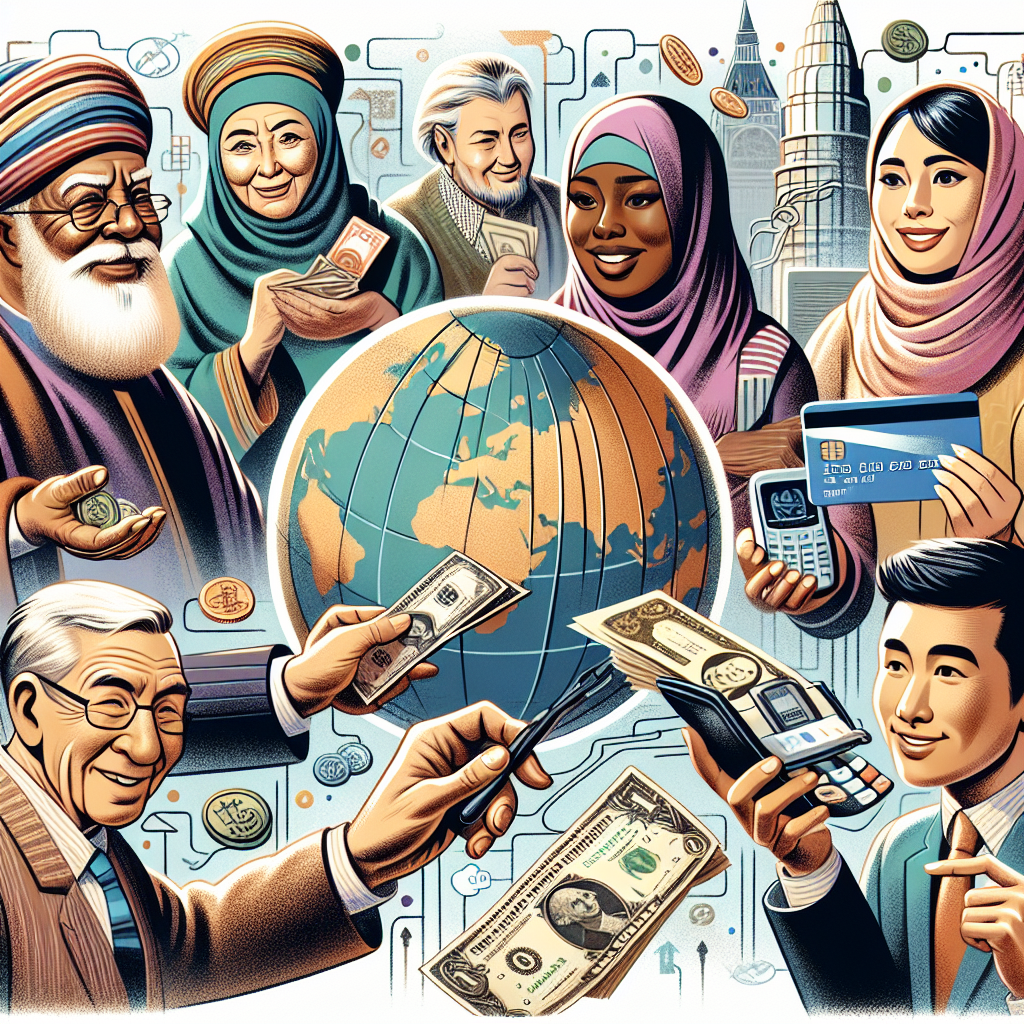Crypto, short for cryptocurrency, is a new type of money that exists only online. It is different from the money we use every day, like dollars or euros. People are starting to think that crypto could change how we send and receive money around the world. This shift could make payments faster, cheaper, and safer.
One big reason people like crypto is because it uses technology called blockchain. Blockchain is like a special notebook that keeps track of who has sent money to whom. Once a transaction is written down in this notebook, it can’t be changed or erased, which helps to stop cheating. This is important for safety.
Another reason is that crypto can cross borders easily. When you send money internationally with regular banks, it can take a long time and cost a lot of fees. But with crypto, transactions can happen almost instantly and usually at a lower cost. This means that someone in one country can send money to a person in another country without any hassle.
However, there are still challenges. Not everyone understands how crypto works, and some people worry about losing their money because of its ups and downs in value. Governments around the world are also trying to figure out how to manage and regulate crypto to protect people.
In conclusion, crypto has a big potential to change global payments. As more people learn about it and as technology improves, we might see a world where sending money is as easy as sending a text message!
Glossary:
Crypto: A type of digital money that uses technology to secure transactions.
Cryptocurrency: Another word for crypto, digital currency that can be used for buying and selling.
Blockchain: A secure way to record transactions that cannot be changed or erased.
Transaction: The act of sending or receiving money.
International payments: Sending money from one country to another.
The Role of Crypto in the Future of Global Payments
Cryptocurrency, often referred to as “crypto,” is a type of digital or virtual currency that uses cryptography for security. It operates on technology called blockchain, which is a decentralized ledger that records all transactions across a network of computers. This means that transactions can be made securely and without the need for intermediaries like banks.
Understanding Key Terms
- Cryptocurrency: A digital currency secured by cryptography, making it difficult to counterfeit or double-spend.
- Blockchain: A distributed ledger technology that records all transactions made with cryptocurrencies.
- Decentralization: The distribution of functions and powers away from a central authority, reducing the risk of corruption or failure.
- Transaction Fees: Charges that users must pay when conducting transactions using cryptocurrencies.
- Smart Contracts: Self-executing contracts with the terms of the agreement directly written into code.
Current Challenges in Global Payments
The global payment system today faces several significant challenges:
- High Fees: Traditional cross-border payment methods often involve high transaction fees and currency conversion rates.
- Slow Processing Times: Transactions can take several days to clear, especially when processed through multiple intermediaries.
- Lack of Accessibility: Many individuals, especially in developing countries, do not have access to banking services.
The Potential of Crypto Solutions
Cryptocurrency offers unique solutions to address these challenges:
- Lower Transaction Fees: Cryptocurrencies can significantly reduce transaction costs. For example, “In many cases, blockchain transactions can be conducted at a fraction of the cost of traditional banking systems.”
- Instant Transactions: Many cryptocurrencies enable faster processing times, allowing for near-instant cross-border payments.
- Increased Accessibility: Cryptocurrencies provide access to financial services for unbanked populations, promoting financial inclusion.
Real-World Examples of Cryptocurrency in Payments
Many companies worldwide are adopting cryptocurrencies for payments:
| Square | Allows users to buy, sell, and send Bitcoin. |
| PayPal | Enables users to hold, send and receive cryptocurrencies like Bitcoin, Ethereum, and Litecoin. |
| Overstock | Accepts Bitcoin and other cryptocurrencies for online purchases. |
Challenges Ahead for Cryptocurrency
Despite its potential, cryptocurrency still faces several challenges:
- Regulatory Concerns: Governments around the world are still figuring out how to regulate cryptocurrencies and ensure consumer protection.
- Volatility: The prices of cryptocurrencies can fluctuate wildly, making them risky for everyday transactions.
- Technical Barriers: Not everyone understands how to use cryptocurrencies, which can hinder widespread adoption.
The Future of Crypto in Global Payments
With ongoing development and acceptance, the future looks promising for cryptocurrency in global payments. Experts note, “The introduction of central bank digital currencies (CBDCs) could revolutionize the payment landscape, making transactions faster and safer.” As more businesses and individuals start to recognize the benefits, cryptocurrencies may become a mainstream payment method.
Ultimately, the role of crypto in global payments highlights a significant shift towards a more decentralized, accessible, and cost-efficient financial system. As this technology continues to evolve, it has the potential to redefine the way we think about money and transactions.
What is the role of cryptocurrency in global payments?
Cryptocurrency plays a significant role in transforming global payments by providing a decentralized, secure, and fast method of transaction. It allows for cross-border payments without the need for traditional banking systems or intermediaries, reducing fees and transaction times.
How do cryptocurrencies improve payment efficiency?
Cryptocurrencies streamline payment processes by enabling instant transactions that can occur 24/7. Unlike traditional banking systems that may take days to settle international payments, cryptocurrencies can process transactions within minutes, increasing overall efficiency.
What are the advantages of using cryptocurrency for businesses?
For businesses, accepting cryptocurrencies can lower transaction fees, eliminate chargebacks, and tap into a growing market of crypto users. Additionally, it offers more flexibility in payment options and can enhance customer loyalty among tech-savvy consumers.
Are there any risks associated with using cryptocurrency for payments?
Yes, there are risks, including market volatility, regulatory uncertainties, and potential security issues. Businesses must be aware of these factors and consider implementing robust measures to mitigate risks when accepting cryptocurrencies.
How do consumers benefit from using cryptocurrency for payments?
Consumers benefit from potential lower transaction costs, improved privacy, and faster transactions. They can also access global markets without the limitations imposed by traditional banking systems, making cross-border purchases easier.
What impact will cryptocurrency have on traditional banking systems?
Cryptocurrency could disrupt traditional banking systems by providing alternative solutions for payments and savings. Banks may need to adapt by offering crypto-related services or integrating blockchain technology to remain relevant in a changing financial landscape.
Are cryptocurrencies widely accepted for global payments?
Ripple Powers the Future of Global Payments and Central Bank Digital Currencies
Acceptance of cryptocurrencies for global payments is growing, but it varies by region and business type. While some companies fully embrace crypto, others remain cautious due to regulatory concerns and market volatility.
What is the future outlook for cryptocurrency in global payments?
The future outlook for cryptocurrency in global payments is promising, with increasing adoption and advancements in technology. As blockchain solutions evolve and regulatory clarity improves, cryptocurrencies could become a standard method for conducting global transactions.



